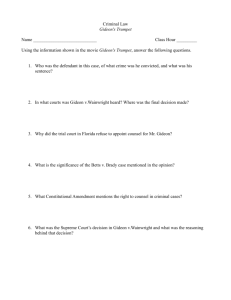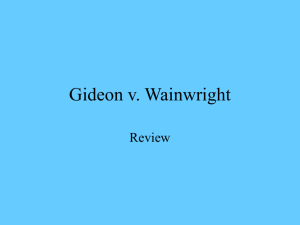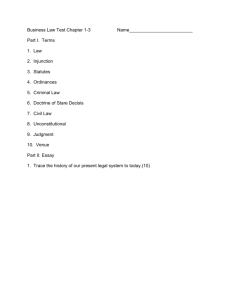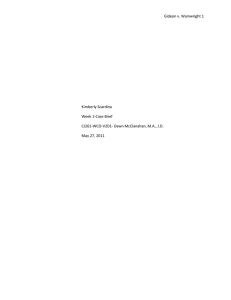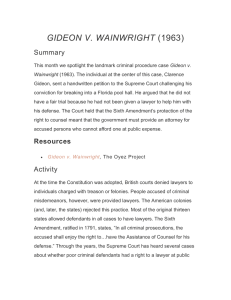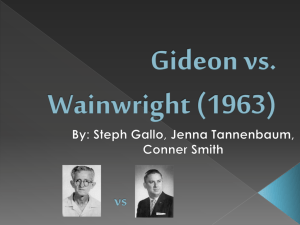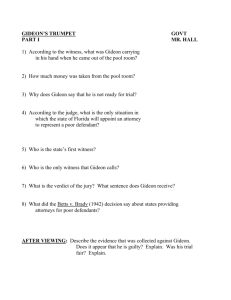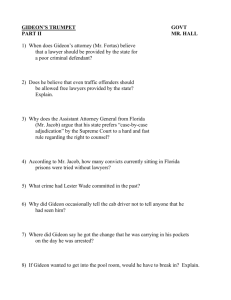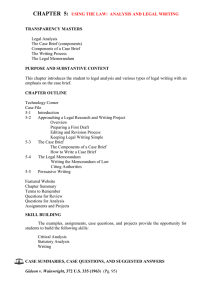Gideon v
advertisement
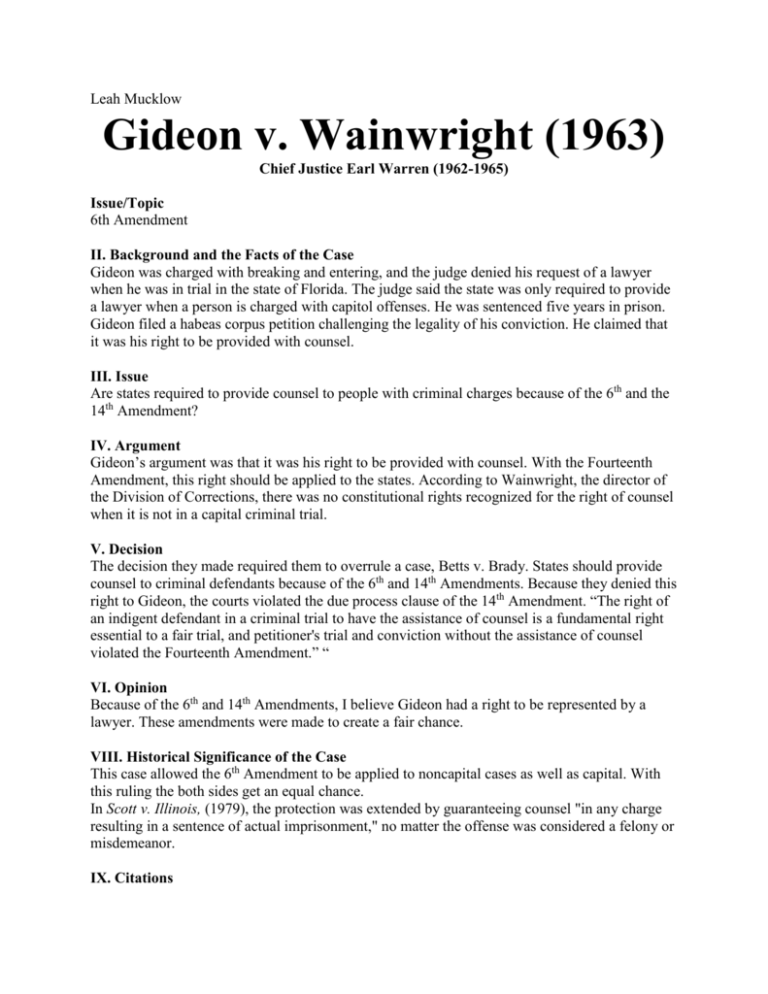
Leah Mucklow Gideon v. Wainwright (1963) Chief Justice Earl Warren (1962-1965) Issue/Topic 6th Amendment II. Background and the Facts of the Case Gideon was charged with breaking and entering, and the judge denied his request of a lawyer when he was in trial in the state of Florida. The judge said the state was only required to provide a lawyer when a person is charged with capitol offenses. He was sentenced five years in prison. Gideon filed a habeas corpus petition challenging the legality of his conviction. He claimed that it was his right to be provided with counsel. III. Issue Are states required to provide counsel to people with criminal charges because of the 6th and the 14th Amendment? IV. Argument Gideon’s argument was that it was his right to be provided with counsel. With the Fourteenth Amendment, this right should be applied to the states. According to Wainwright, the director of the Division of Corrections, there was no constitutional rights recognized for the right of counsel when it is not in a capital criminal trial. V. Decision The decision they made required them to overrule a case, Betts v. Brady. States should provide counsel to criminal defendants because of the 6th and 14th Amendments. Because they denied this right to Gideon, the courts violated the due process clause of the 14th Amendment. “The right of an indigent defendant in a criminal trial to have the assistance of counsel is a fundamental right essential to a fair trial, and petitioner's trial and conviction without the assistance of counsel violated the Fourteenth Amendment.” “ VI. Opinion Because of the 6th and 14th Amendments, I believe Gideon had a right to be represented by a lawyer. These amendments were made to create a fair chance. VIII. Historical Significance of the Case This case allowed the 6th Amendment to be applied to noncapital cases as well as capital. With this ruling the both sides get an equal chance. In Scott v. Illinois, (1979), the protection was extended by guaranteeing counsel "in any charge resulting in a sentence of actual imprisonment," no matter the offense was considered a felony or misdemeanor. IX. Citations "Gideon v. Wainright." Enotes. Web. <http://www.enotes.com/supreme-court-drama/muller-v-oregon>. Hartman, Gary R., Roy M. Mersky, and Cindy L. Tate. Landmark Supreme Court Cases: the Most Influential Decisions of the Supreme Court of the United States. New York: Checkmark, 2007. Print.
